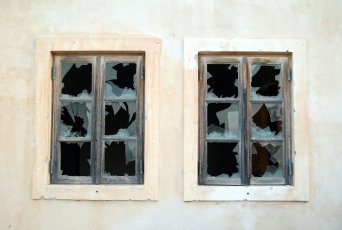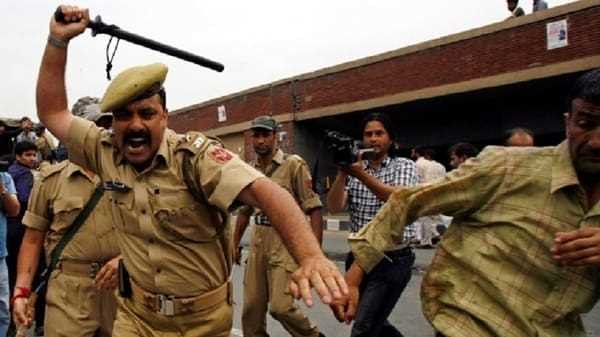- About
- Topics
- Picks
- Audio
- Story
- In-Depth
- Opinion
- News
- Donate
- Signup for our newsletterOur Editors' Best Picks.Send
Read, Debate: Engage.
| topic: | Transparency and Corruption |
|---|---|
| located: | India |
| editor: | Hanan Zaffar |
Editor’s note: this article contains strong imagery of sexual violence.
Last week, Indian authorities raided the BBC offices in New Delhi and Mumbai in an apparent retaliation for the media’s two-part documentary that exposes Prime Minister Narendra Modi’s role in the 2002 anti-Muslim riots. While the Indian Income Tax Department termed the raids a 'survey operation’ pertaining to an investigation for tax evasion, critics labelled the action as "brazen and unapologetic vengeance to strangulate remotely critical voices."
The Editors Guild and Press Club of India called it a "clear case of vendetta" that "undermines" constitutional democracy.
The BBC documentary series depicted the current Indian prime minister’s attitude toward Indian Muslims, focussing specifically on his role in the 2002 Gujarat riots. The documentary, which was instantly banned in India, blamed Modi for the riots, while showing how his government effectively did nothing to stop the massacre of Muslims.
In 2002, when Modi was Chief Minister of Gujarat, the state witnessed a massive riot in which hundreds of Muslims were killed. The riots are considered one of the worst communal clashes in the country that left more than a thousand people dead, most of whom were Muslims. Many reports blamed Modi and his government for being complacent before the mass murder of Muslims. The state police was accused of stepping aside as Muslims were massacred by rampaging right-wing Hindu mobs across many regions of the state.
“In 16 of Gujarat’s 24 districts, attacks on Muslim homes, business enterprises and properties resembled each other: mobs, apparently using data from official tax lists, electoral rolls and other official records collated well in advance, targeted Muslims shouting the same slogans,” Amnesty International noted in its report that directly blamed government for the riots.
“Hundreds of girls and women were dragged out from their homes, stripped naked before their own families and thousands of attackers, who taunted, insulted and threatened them. They were then raped, often gangraped, beaten with sticks, Hindu tridents and swords; had their breasts cut off and their wombs slashed open and rods violently pushed into their vaginas. Finally, the women victims were mutilated or burned to death. The victims included young girls and old women, pregnant women and babies,” the report added.
As the Indian political atmosphere further polarised due to these communal tensions, the attacks on Muslims politically benefited Modi, who was re-elected as chief Minister in the state elections months after the riots.
Even though Modi and his political associates were directly named in many instances of violence, eventually they were acquitted in most cases. Even a few individuals who were convicted in the riots later were released on bail.
Many of the perpetrators have even been celebrated in the country. Very recently, men convicted of the gang-rape of Bilkis Bano and the murder of her family during the riots were released from prison and greeted with garlands by members of a right-wing party close to the ruling BJP.
The Gujarat riots and their aftermath changed the political landscape of the country. They propelled Modi’s political career within his party, forging an image of a hardliner who would be tough against Muslims. For this reason, evidence and documentaries reminding the country and the world of this violent chapter in India’s history, and Modi’s involvement in it, are crucial to prevent them from reoccurring or slipping into oblivion.
Image by Matt Artz

